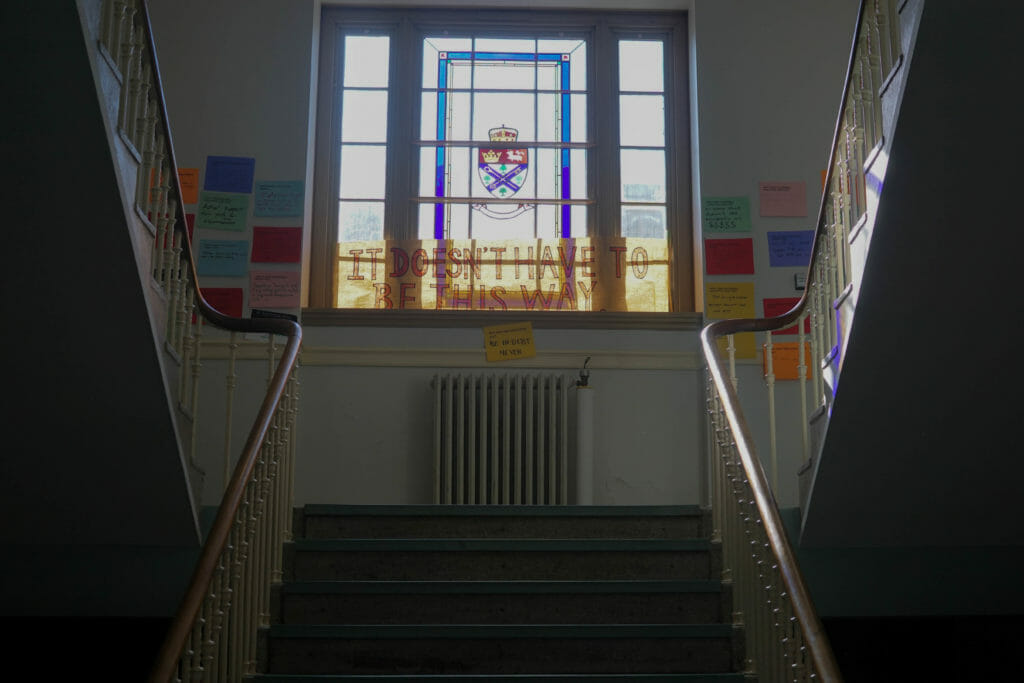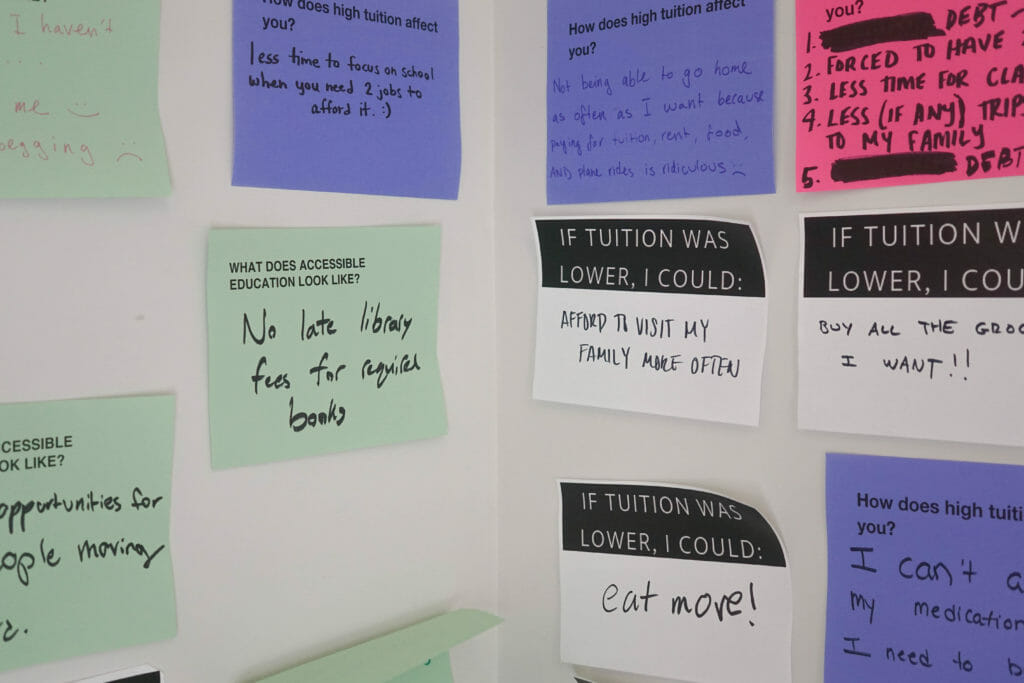No increased cap on tuition hikes
The Nova Scotia Government and the Council of Nova Scotia University Presidents have unveiled a new five-year deal on university funding in the province.
While public funding to the universities received a bump, the Canadian Federation of Students (CFS) and the NDP have criticized the government for offering no changes to tuition caps, in the province with the highest tuition in Canada.
The new memorandum of understanding (MOU) was released on Sept. 13. Within it, the province has outlined a one per cent funding increase to universities, which is a $3.6 million bump from 2018-19, to $365 million annually.
It also included a three per cent tuition cap for undergraduate students from Nova Scotia, along with increased annual funding to e-mental health (mental health services via the internet or apps), innovation and sexual violence prevention. The universities have also committed to reviewing their sexual violence policies every three years.

Tuition is the real problem
While the MOU provides funding for multiple student services, student advocate Lianne Xiao, chairperson of the Nova Scotia branch of the Canadian Federation of Students (CFS-NS), said the MOU provides no help for students in terms of the costs of going to school.
“Tuition fees remain unregulated for the majority of students. That includes: out of province, international, graduate and those in the professional studies, which includes medicine, law and dentistry,” said Xiao. Their greatest concern with the MOU is that the three per cent tuition cap only applies to undergraduate Nova Scotians.
These concerns are echoed by the NDP, who immediately after the MOU was announced, issued a press release entitled: “New MOU with universities will see tuition fees rise even further.”
NDP MLA for Cape Breton Centre, Tammy Martin, said the party would work to make tuition free at the Nova Scotia Community College and work with individual universities to lower their tuition.
However, according to Labi Kousolis, Minister of Labour and Advanced Education for the province, the promise of free tuition is a “cop out.”
“The hardest thing you can ask government to do, is what we’re trying to do, which is get you a good paying job when you’re done,” said Kosoulis. “If you look at our graduates’ opportunities, graduates innovation programs, we’re actually subsidizing employers 40 per cent of a new graduate salary. So, they recoup their training costs. It has resulted in employers using that program and giving students the one or two years of experience they need — to now be marketable.”
According to 2018 CFS polling data, one in three Nova Scotians said that in the past year, they or a family member did not attend university because it would mean taking on too much debt.

The deal
As Xiao puts it: “The MOU is an agreement signed between the province and CONSUP (Council of Nova Scotia University Presidents) and between those two, students don’t have a seat at the table.
“We’re looking for greater transparency and accountability from the government with this publication process,” they said.
An MOU fact sheet released by the government it lists the 11 priorities of the new agreement. The second item down reads: “transparency and accountability.” Greg Ells, the senior executive director of Higher Education with the province, who was at the table with CONSUP when the MOU was drafted, believes they came through on those goals when creating this iteration.
“We met with students, at least two or three times as we were actually drafting the MOU to update them on our progress and on the content,” said Ells, “and they can request individual meetings with senior staff and/or the minister. So we feel that we’re very open to receiving student input and that student input was a significant part of the document that we’ve ended up with.”
Programs benefit
Through the previous MOU, every university was required, for the first time, to create a sexual violence policy. Under the new deal, those policies will have their effectiveness monitored as the new MOU subjects them to tri-yearly review.
Xiao said they’re pleased that the government has taken an interest in prevention and awareness, but they would like to see “every school have the same robust principles, those principles would be trauma-informed and survivor centric.”
All told, the new MOU provides $1.685 million each year, over the next five years for the Post-Secondary Innovation Team, $600,000 for e-mental health and $470,000 to sexual violence prevention.
However, Xiao said, “the MOU is not really up to the standard of how students and youth can keep our governments accountable to our education.”
